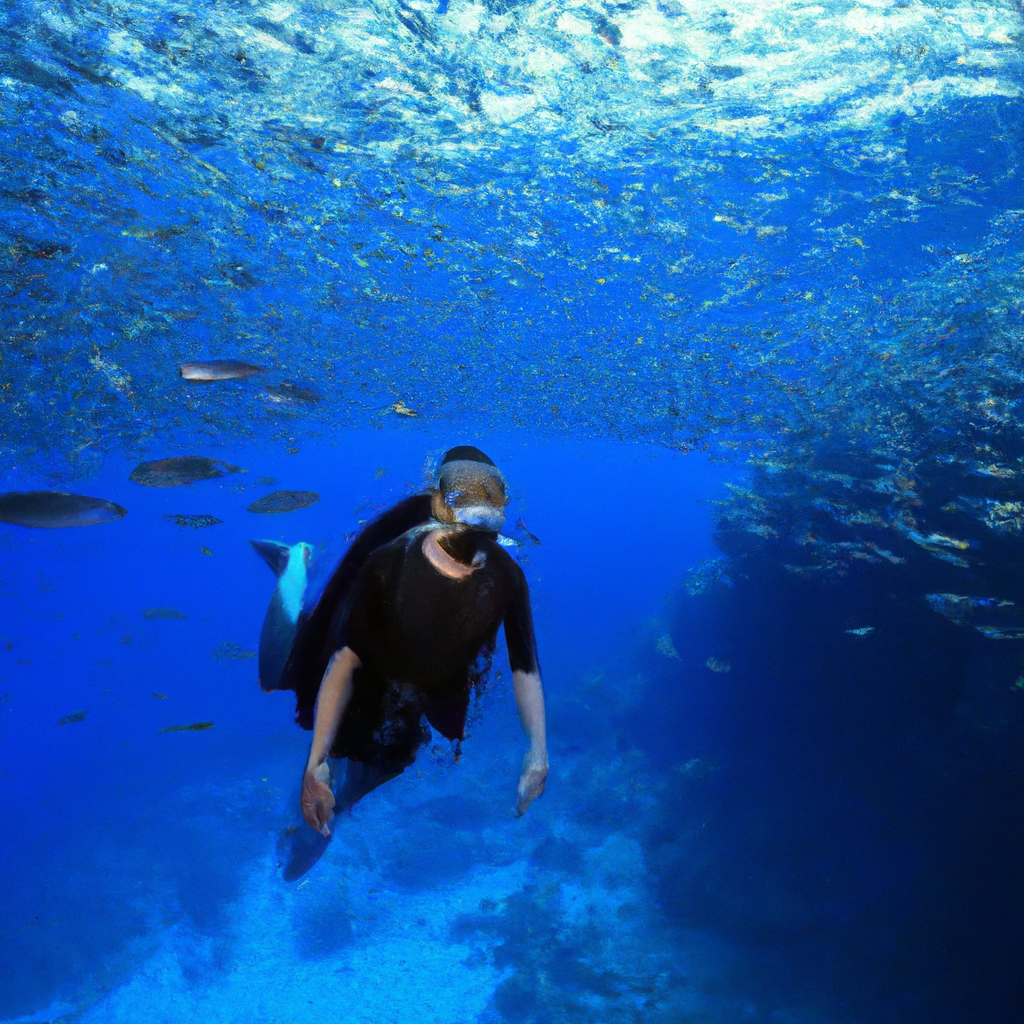If you’re ready for an unforgettable adventure beneath the crystal-clear waters, then it’s time to discover the hidden gems of scuba diving in the Greek Islands. With its stunning coastlines and rich marine life, Greece offers a captivating experience for diving enthusiasts of all levels. From the vibrant coral reefs of Crete to the mystical shipwrecks of Santorini, each island presents a unique underwater world waiting to be explored. So grab your flippers, dive into the shimmering blue, and get ready to uncover the breathtaking wonders that lie beneath the surface of the Greek Islands.
Overview of Scuba Diving in the Greek Islands
Scuba diving in the Greek Islands offers an unforgettable underwater experience filled with breathtaking sights and remarkable marine life. With over 6,000 islands and islets scattered throughout the Aegean and Ionian Seas, the Greek Islands provide divers with numerous diving opportunities. From famous dive sites showcasing ancient shipwrecks to stunning rock formations and vibrant coral reefs, the Greek Islands offer a diverse underwater landscape that caters to both experienced and novice divers.
Diving Opportunities in the Greek Islands
The Greek Islands are renowned for their diverse diving opportunities. Whether you’re a beginner looking to take your first dive or an experienced diver seeking new adventures, there is a wide range of dive sites to explore. From shallow coastal dives to deeper offshore sites, the Greek Islands offer something for everyone. Dive centers and instructors are available throughout the islands, providing both training and guidance for those new to scuba diving.

Famous Dive Sites in the Greek Islands
The Greek Islands are home to several famous dive sites that attract divers from all over the world. One such site is the SS Thistlegorm, a British shipwreck from World War II located near the island of Crete. This wreck has become an underwater museum, with its cargo holds still filled with jeeps, motorcycles, and other relics from the war. Another popular dive site is the Blue Hole in the island of Rhodes, a natural sinkhole that goes down to a depth of 100 meters, offering a unique dive experience.
Unique Underwater Species in the Greek Islands
The waters surrounding the Greek Islands are teeming with a variety of unique underwater species. Divers have the opportunity to encounter colorful fish species such as parrotfish, groupers, and damselfish, as well as vibrant coral reefs that are home to a vast array of marine life. Further exploration may reveal exotic marine invertebrates like sea cucumbers, nudibranchs, and octopuses, adding to the wonder and beauty of the underwater world.

Best Time to Dive in the Greek Islands
Climatic Conditions
The best time to dive in the Greek Islands is during the summer months when the weather is warm and the sea is calm. From May to October, the seas are generally calm with good visibility, making it the ideal time for diving. The water temperature during this period ranges from 20°C to 26°C, providing comfortable diving conditions for both recreational and technical divers.
Seasonal Considerations
While diving in the summer offers the most favorable conditions, it is important to consider the seasonal variations that can affect diving conditions. During the winter months, sea temperatures drop, reaching as low as 14°C in some areas. Strong winds and rough seas can also be a factor during this time, limiting dive opportunities. It is advisable to plan your diving trips during the summer when the water is warmer and the sea is more forgiving.
Safety and Certification
Importance of Certification
Obtaining proper certification is crucial for safe and enjoyable scuba diving in the Greek Islands. Certification courses provide divers with the necessary skills and knowledge to navigate underwater environments and handle potential risks. It is important to choose a reputable dive center that offers internationally recognized certification courses such as PADI or SSI. These courses not only enhance your diving abilities but also ensure that you are well-equipped to handle any emergency situations.
Diving Safety Guidelines
Before embarking on a scuba diving trip in the Greek Islands, it is essential to familiarize yourself with diving safety guidelines. These guidelines include proper pre-dive planning, equipment checks, diving within your limits, and adhering to buddy diving principles. It is also important to be aware of local diving regulations and guidelines specific to each dive site. By following these safety guidelines, you can ensure a safe and enjoyable diving experience.
Equipment for Scuba Diving in the Greek Islands
Essential Gear for Divers
When scuba diving in the Greek Islands, certain essential gear is necessary to ensure a comfortable and safe dive. These include a mask, snorkel, fins, wetsuit or drysuit, buoyancy control device (BCD), regulator, and dive computer. These pieces of equipment allow divers to properly navigate and control their movements underwater while ensuring their safety and comfort throughout the dive.
Renting vs. Bringing Your Own Equipment
When planning a scuba diving trip to the Greek Islands, divers have the option of renting equipment or bringing their own. Renting equipment can be a convenient option, especially for those traveling with limited luggage space or for beginners trying out diving for the first time. However, for experienced divers who prefer the familiarity and comfort of their own equipment, bringing their own gear may be the preferred choice. It is important to check the quality and maintenance of rental gear and ensure that it meets the required safety standards.
Choosing a Dive Center or Instructor
Criteria for Selecting a Dive Center
Choosing the right dive center is essential for a successful diving experience in the Greek Islands. When selecting a dive center, consider factors such as the center’s reputation, the qualifications and experience of their instructors, the quality of their equipment, and the variety of dive sites they offer. Reading online reviews and seeking recommendations from fellow divers can also help in making an informed decision.
Qualities of a Reliable Dive Instructor
A reliable dive instructor plays a significant role in shaping your scuba diving journey. Look for instructors who are patient, experienced, and knowledgeable. A good instructor should prioritize safety, provide clear instructions, and ensure that you feel comfortable and confident underwater. A positive and supportive learning experience with a skilled instructor can enhance your diving skills and provide you with the confidence to explore the underwater wonders of the Greek Islands.
Preparing for a Scuba Diving Trip in the Greek Islands
Packing Essentials
When preparing for a scuba diving trip in the Greek Islands, it is important to pack the essential items. These include your dive gear, swi
